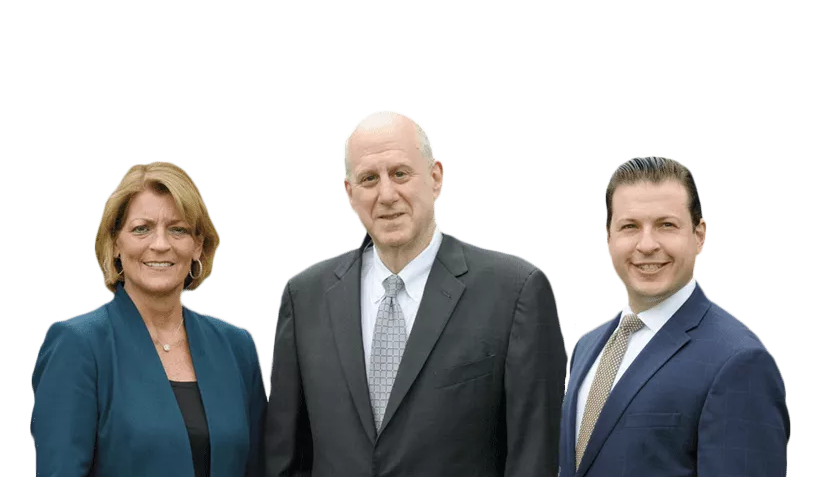
Prescription or Illegal Drug-Related DWI Charges
Interviewer: What percentage of cases do you see due to alcohol versus drugs?
Paul: I would say that prescription drug cases are increasing. Illegal drugs have been about the same, marijuana, heroin, cocaine. I would say alcohol is probably 75% to 80%, and is still the bulk of our work.
Interviewer: Well, this brings up a question, if you can get a DWI charge for drugs, even prescription drugs, what are those cases like? Are they harder to defend or easier?
Paul: There’s a particular level that you’re allowed in your system. It’s called the therapeutic level. And sometimes people inadvertently don’t time their prescriptions right, and it could have an impact on their body.
The other side of it is if they’re on a prescription where they’re not supposed to consume alcohol, and they do, it could have an intoxicating effect on their body, even with just one drink.
Interviewer: So, for example, if you had taken Vicodin and you then drank two beers.
Paul: Yes, that is right. But in their defense to a degree, the pharmacists don’t really explain the side effects well. And people will not always come to the conclusion when it says, “Do not operate heavy machinery,” they don’t realize that that includes a vehicle. And I don’t blame them, in a way, because you think of heavy machinery is like a crane.
What Do Police Look For During DUI stops?
Interviewer: Having police evaluate people that they suspect are under the influence of drugs, do they have different police officers with different training to do it, or they do just the tests? What do they do?
Paul: Well, to a degree what they would probably say is the totality of the circumstances, such as what was the vehicle’s behavior when they stopped? Was it swerving a lot? Did they observe the person bobbing their head? Then it goes to the psycho physicals, which would be: What was the person’s speech like? Were their eyes glassy? Did they have dilated pupils? Were their movements slow in reaching for their driver’s license? And then they try to confirm that through the field sobriety tests.
Interviewer: A breath test, I guess, would be useless when it comes to drugs, so what’s the default; do they use blood or urine?
Paul: That is a good question. Urine and blood tests are used to test for drugs. Which test is used is up to the police departments’ discretion, and really their availability for someone who is certified to administer either of those tests.
Does New Jersey Use Drug Recognition Experts?
Interviewer: Are there certain police called DRE, like Drug Recognition Experts, that they may call in to verify findings?
Paul: Yes, New Jersey does employ these specially trained officers to evaluate drug-related DWIs.
Interviewer: Will people know if they are speaking to a DRE?
Paul: They may not know. The officers frequently aren’t being friendly, and even if they are friendly they aren’t really that friendly because they’re charging them with a DWI. But they may have a sense that the Drug Recognition Expert has come in and are asking them certain questions, and evaluating their psycho-physicals.
Aggravated DWI Charges
Interviewer: Are there any aggravating or enhancing factors that make a DUI or DWI a lot worse, like if you have minors in the car, or if you have an accident?
Paul: Yes, some aggravated charges involve children in the car at the time of the DWI charge. If the police stop occurred in a school zone, if there was an accident, if there was an accident with injuries, if there was lack of cooperation with the officers are all factors that will add aggravated charges to a DWI. And it’s also an individual’s representation in front of the judge. What I mean by that is if you’re above a BAC level of 0.10, the suspension is seven months to one year. It’s also up to 30 days of jail.
I have seen cases where a client was not prepared by their lawyer appropriately, and the person had a 0.22 blood alcohol level. When the judge asked them, how much did you consume that evening, they said, “Two beers.”
Interviewer: That does not seem like a wise answer.
Paul: The judge gave them an opportunity to change their answer, and they stuck with two beers. The judge gave them a week then in jail and maxed them out at the year license suspension.
Interviewer: Because they’re obviously lying?
Paul: Right. And I’ve had one where instead of signing the ticket the person wrote obscenities to the officer. The judge slapped them on the wrist a bit. Now with that one, you’ve got to get ahead of the curve on that, and be ready for your clients to address that. You want to meet that head on, because you know the judge is looking at that.
Paul: I had one client, and when dealing with one particular judge, you need to be very honest about how much you had consumed that night. And the judge said, “How much did you have that evening?” He said, “I had eight Coors Lights, and I thought I was going to have a ninth, but it turned out I started drinking my dip spit.” It was hilarious, you know; the judge laughed, and I know this judge extremely well, and he said, “I appreciate your honesty, and frankness, in answering the question.”
Interviewer: That sounds good.
Paul: You have to know that about those judges.
Common Stories the Police Hear During a DWI Stop
Interviewer: Is there a particular back-story you hear from the vast majority of the clients such as, I only had two beers, or excuses like that?
Paul: Yes, frequently they will tell the cops that they only had two beers. That’s almost a running joke, that that’s what a lot of people have. When I talk to them I tell them, obviously, it’s important to tell me the truth so we can manage the case accordingly. But most people will admit to how much they drank.* all fields are require





